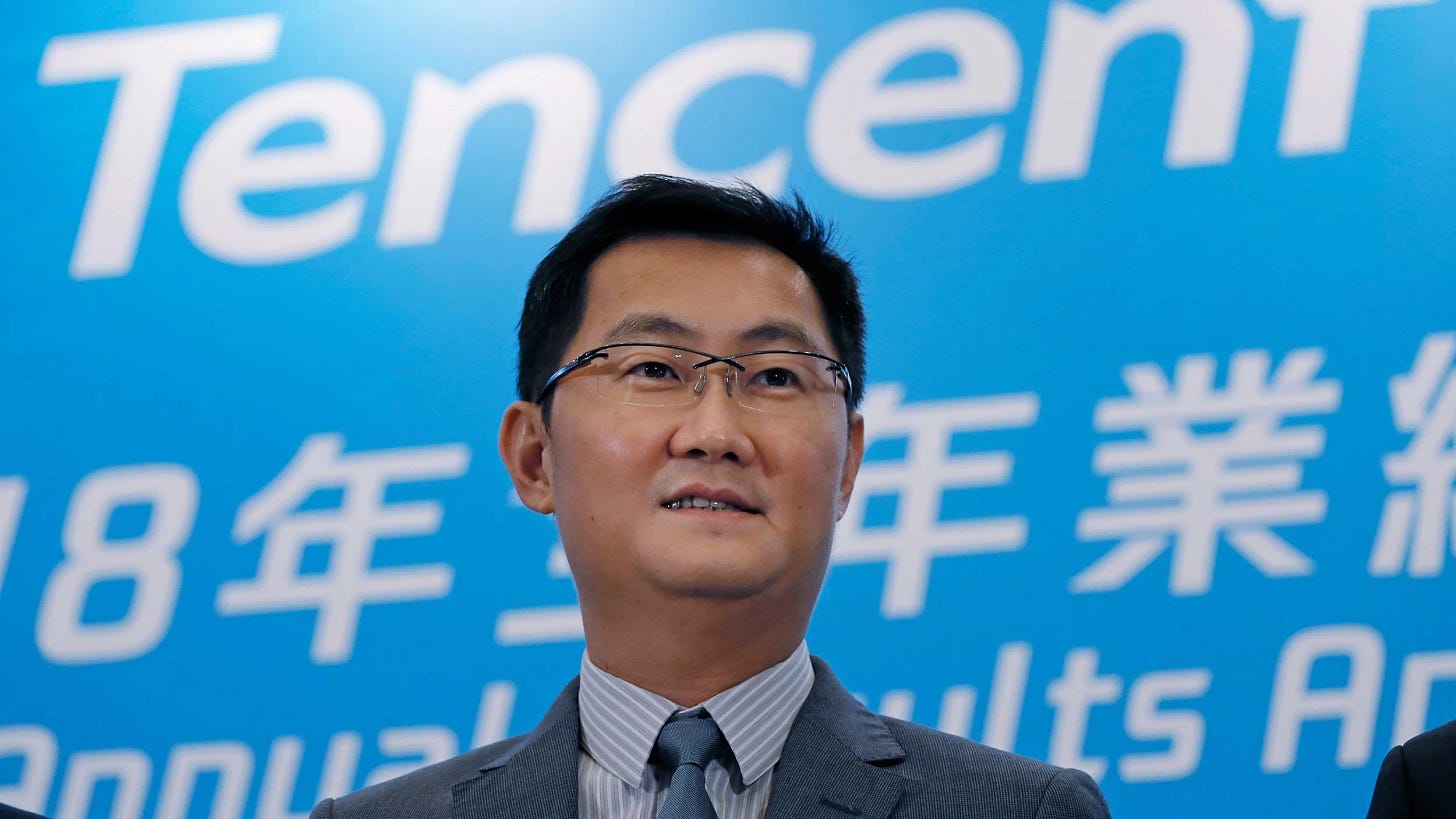China’s Robotaxi Race Hits an Inflection Point — But Baidu Risks Falling Behind again
Baidu lags as rivals secure huge WeChat and Uber deals
Introduction
This started as a quick update on Baidu’s earnings. It still is—but it’s also a look at something broader: the shifting dynamics in China’s autonomous driving space. Not a full market overview, but a closer look at the real competitive dynamics now coming into focus. There’s a lot of interesting things happening—and fast. Spoiler: Baidu’s personal nightmare just came true.
Now, I’ve written about Baidu before, so I won’t waste your time rehashing it here. If you’re new, or just need a refresher, here are the two articles:
The second piece aged well—let’s say like a good bottle of Moutai. Things more or less played out the way I laid them out back then, though I credit that more to pattern recognition than prophecy.
Anyway, read those if you need context. The Baidu drama can be summarized by this saying in China:
起个大早,赶个晚集
which roughly translates to “Got up early but was late to the market.”
The Great Wall Street - Is Baidu fumbling it again?
Then let’s get into what’s changed—and why it matters.
Baidu’s earnings
Baidu’s earnings? Same old story. Core revenue was up 7% year over year, mostly carried by a 42% jump in AI Cloud. If you zoom out, the business now rests on two legs: online marketing (which is still search) and their AI bets—cloud and autonomous driving. They’ve also stopped pretending smart devices are a thing. Not a single mention. That chapter’s closed.
The search business
The search business is virtually dead—online marketing revenue dropped 6% year over year. Traditional search is in decline, and while they’ve built a new AI-powered version, they still have no clear path to monetizing it.
On monetization, we are still very early had just starting to prepare for testing, Since our AI search differs significantly from the traditional search, the corresponding monetization approach needs to be rebuilt and refined and this takes some time.
Baidu Q1 2025 call
Meanwhile, their competitors are deliberately slowing down marketing revenue growth, prioritizing long-term sustainability over short-term gains.
I wouldn't read too much into the quarter-by-quarter fluctuations in the advertising revenue growth rate. It's been within a band. And frankly, the first quarter was at the upper end of that band. And we wouldn't even necessarily desire an acceleration.
James Mitchell, Tencent Q1 2025 call
AI cloud
AI Cloud revenue jumped 42%, which—yes—is impressive at face value. But let’s not forget the base: RMB 6.7 billion. That’s still small. For comparison, Alibaba’s Cloud Intelligence Group is pulling in around RMB 30 billion. Tencent? Who knows. They prefer to stash their cloud numbers deep inside FinTech & Business Services like an expensive bottle of Moutai behind the cleaning supplies. The definitions of their cloud businesses vary, the disclosures are inconsistent, and frankly, it’s hard to line them up apples-to-apples. But one thing is clear: Baidu is not (yet) playing in the same league.
They squandered their head start with ERNIE, and most of the technical community seems more interested in DeepSeek or other models than anything Baidu’s shipping.
Still, what really tested my patience was the language in the earnings call:
Customers are increasingly choosing Baidu AI Cloud for our recognized leadership in AI infrastructure.
Baidu Q1 2025 call
That line, or a version of it, came up again and again. “Increasingly.” When “increasingly” outruns earnings, investors start checking the small print. No share-gain data, no clear metrics—just a steady drumbeat of self-affirmation. It’s what you say when there’s nothing concrete left to lean on. Baidu’s not alone in this.
JD, in its latest earnings call, claimed (12 times!) they already hold a big part of consumer mindshare for everything ranging from food delivery to consumer goods. In consumer electronics? Absolutely, 100% yes. But everything else? Definitely no. Then again, like Baidu’s “customers are increasingly choosing us”—whatever increasingly means—JD’s mindshare is just another beautifully vague term. You can say it all you want, and nobody can really pin you down. For me, that’s just noise. It’s a red flag.1
Capex and Free cash flow
Like Alibaba and Tencent, Baidu is going heavy on AI, with significant capital expenditures going into infrastructure. As a side remark, Baidu sounded remarkably confident about domestic chipmakers filling any gaps left by GPU restrictions.
You can already see the impact of these investments in the numbers: free cash flow was negative RMB 8.9 billion this quarter, and excluding their long-suffering video platform iQIYI, it drops further to negative RMB 9.2 billion.
The challenge is that, unlike Tencent or Alibaba, Baidu hasn’t yet found meaningful internal use cases for its AI investments. Tencent, for instance, is already applying AI to lift ad click-through rates and streamline game development—and said outright they’re prioritizing GPUs for their own use. That’s the difference: Tencent’s AI spend flows directly into products they control and where returns are guaranteed. Baidu, by contrast, is still relying on external customers to generate returns. That makes the bet a riskier.
Apollo Go’s Nightmare Scenario Comes True in China’s Autonomous Driving Race
Before we get into Apollo Go, it’s worth repeating—especially if you haven’t read the last two pieces—what I’ve long thought about Baidu. This is a company full of brilliant researchers and forward-thinking technologists. Vision has never been their problem. But execution? That’s another story. Time and again, Baidu comes up with genuinely impressive ideas—sometimes years ahead of the curve—and then struggles to turn them into real businesses. They aren’t short on innovation. They’re short on monetization. And now, with Apollo Go, that same pattern is playing out all over again.
Here’s a picture of Baidu’s boogeyman: he already killed their search business, and now he’s coming for autonomous driving.
But I’m getting ahead of myself. Let’s now focus on the three major players in China’s robotaxi industry.






